
Ozzy Osbourne’s Death Puts Spotlight on Parkinson’s Disease
Ozzy Osbourne, lead singer of Black Sabbath, has died at age 76. He said he had been previously diagnosed with a form of Parkinson’s disease linked to the gene PRKN
Lauren J. Young is an associate editor for health and medicine at Scientific American. She has edited and written stories that tackle a wide range of subjects, including the COVID pandemic, emerging diseases, evolutionary biology and health inequities. Young has nearly a decade of newsroom and science journalism experience. Before joining Scientific American in 2023, she was an associate editor at Popular Science and a digital producer at public radio’s Science Friday. She has appeared as a guest on radio shows, podcasts and stage events. Young has also spoken on panels for the Asian American Journalists Association, American Library Association, NOVA Science Studio and the New York Botanical Garden. Her work has appeared in Scholastic MATH, School Library Journal, IEEE Spectrum, Atlas Obscura and Smithsonian Magazine. Young studied biology at California Polytechnic State University, San Luis Obispo, before pursuing a master’s at New York University’s Science, Health & Environmental Reporting Program.

Ozzy Osbourne’s Death Puts Spotlight on Parkinson’s Disease
Ozzy Osbourne, lead singer of Black Sabbath, has died at age 76. He said he had been previously diagnosed with a form of Parkinson’s disease linked to the gene PRKN

What Is the Blood Vessel Disease Trump Is Diagnosed With?
After photographs showed President Donald Trump with swollen ankles and bruised hands, the White House revealed he has chronic venous insufficiency—a blood vessel disease that affects circulation in the legs
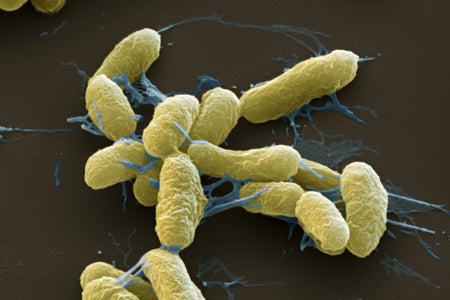
Pneumonic Plague Infections in Modern Times Show the Black Death Isn’t Dead
A person in Arizona recently died of pneumonic plague—a rare and severe form of the disease. An expert explains how the bacteria that spurred the Black Death centuries ago continues to claim lives

A Longevity Expert Breaks Down the Science and Hype of Biological Aging Tests
Super Agers author Eric Topol unpacks the rise of biological age tests—from organ clocks to immune system clocks—and how they might revolutionize early diagnosis of disease

How Bird Flu Became a Human Pandemic Threat
The first hints that a new strain of avian illness is emerging could be found on this beach on Delaware Bay, where migrating birds flock. Here’s what virus detectives who return there every year know right now.

RFK, Jr., Fires CDC Vaccine Panel, Oceans Are Acidifying, and Pangolins Face Newly Understood Threat
Major changes hit a key CDC vaccine advisory panel, ocean acidification crosses a critical threshold, and new research reveals an unexpected threat to pangolins.

How RFK, Jr.’s Dismissal of CDC Immunization Committee Panelists Will Affect America’s Vaccine Access
U.S. Secretary of Health and Human Services Robert F. Kennedy, Jr., abruptly removes all 17 sitting members of the CDC’s Advisory Committee on Immunization Practices (ACIP). An epidemiologist explains how this will affect people’s health and vaccine access

Can You Still Get a COVID Vaccine This Fall? Here’s What to Know
In recent years COVID shots joined flu shots as an annual offering at most neighborhood pharmacies. But the current administration has thrown that into uncertainty
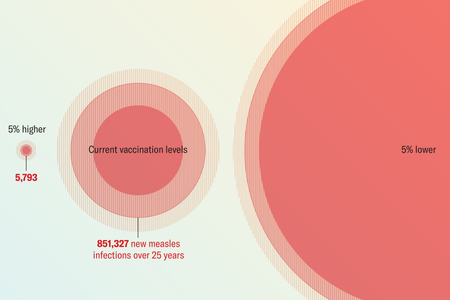
See the Dramatic Consequences of Vaccination Rates Teetering on a ‘Knife’s Edge’
As U.S. childhood vaccination rates sway on a “knife’s edge,” new 25-year projections reveal how slight changes in national immunization could improve—or drastically reverse—the prevalence of measles, polio, rubella and diphtheria

Declining MMR Vaccination Rates Make West Texas Outbreak a Threat to Measles Elimination
High vaccination rates eliminated measles in the U.S. An outbreak that began in West Texas is threatening to overturn that status.

Universal Vaccines Have Eluded Scientists for Years. RFK, Jr., Is Betting This Approach Will Succeed
Trump’s HHS and NIH are planning to invest $500 million in a killed-whole-virus approach to universal vaccines, including such vaccines for flu and COVID. Here’s why that’s challenging

What We Know about Artificial Food Dyes and Health as RFK, Jr., Declares a U.S. Ban
This week the secretary of health and human services announced plans to remove eight more food dyes from the U.S.’s food system
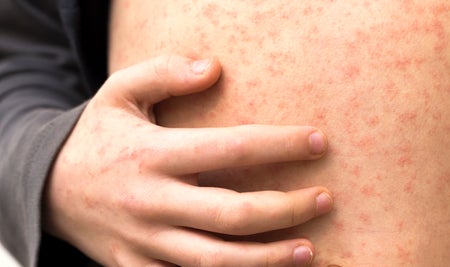
Measles Was ‘Eliminated’ in the U.S. in 2000. The Current Outbreak May Change That
The U.S. formally eliminated measles in 2000 thanks to widespread vaccination, but public health experts fear the current growing outbreak of the disease may allow it to reclaim its hold
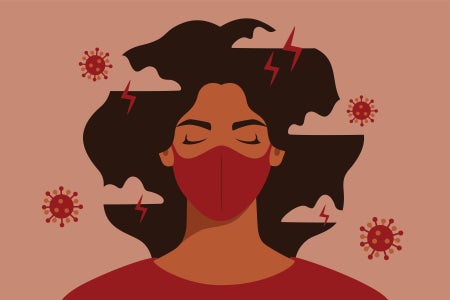
HHS’s Long COVID Office Is Closing. What Will This Mean for Future Research and Treatments?
The Office for Long COVID Research and Practice was instrumental in coordinating the U.S. government’s initiatives to treat, diagnose and prevent the mysterious postviral condition that affects millions of people today

How COVID Shaped a Resilient Generation of Kids
COVID’s emotional and educational strain on children still lingers, but educators and mental health specialists say they are far from a “lost generation”
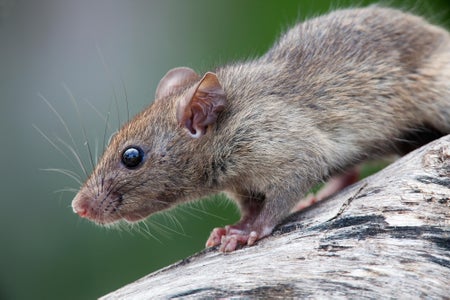
The Latest on Bird Flu’s Hits to Egg Supplies, Rats and Cats
Avian influenza continues to fuel egg shortages. Plus, a delayed CDC study on household cats reveals concerning human exposure routes

Funding Freeze and Communications Hold Create Confusion for U.S. Researchers
Researchers in the U.S. are grappling with Trump administration executive orders around health and science agency funding and communications.
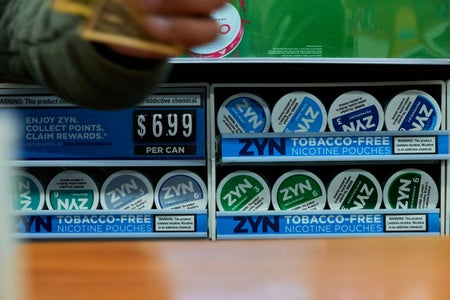
What’s in ZYN, the FDA-Authorized Nicotine Pouch? Is It Harmful?
ZYN, the popular brand of flavored nicotine pouches, recently earned FDA authorization for reducing smoking, but some questions linger. Experts explain the efficacy and potential health risks of nicotine pouches
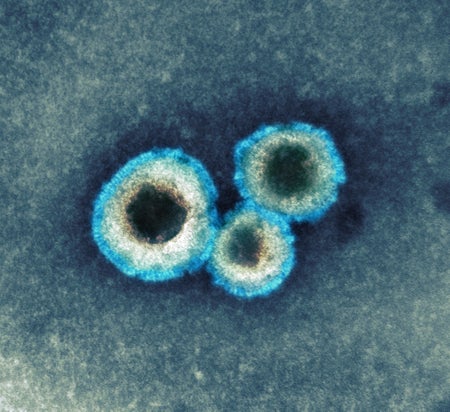
HMPV Cases Are Rising across Asia, but Experts Say Not to Panic
A common respiratory virus called human metapneumovirus, or HMPV, has been spreading in some countries in Asia, including China, India, Malaysia and Kazakhstan. Here’s what we know

Flame Retardants in Black Plastic Spatulas Concern Scientists
The scientists behind a popular study on the health effects of flame retardants in black plastic cooking utensils and toys made a calculation error but still say their revised findings are alarming
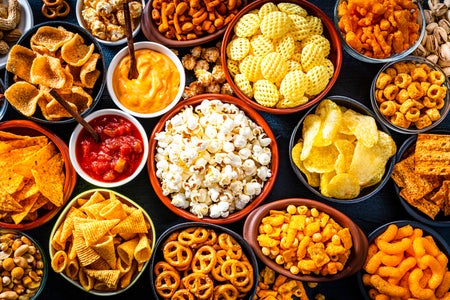
Ultraprocessed Foods High in Seed Oils Could Be Fueling Colon Cancer Risk
A new study suggests certain lipids, particularly omega-6 fatty acids, which are commonly found in seed oils used to make ultraprocessed junk food, may promote inflammation that can lead to colon cancer tumors

Science-Backed Sleep Tips from 2024 to Help You Snooze Better
From the “sleepy girl mocktail” to power naps, researchers explained which sleep trends this year really help with quality shut-eye
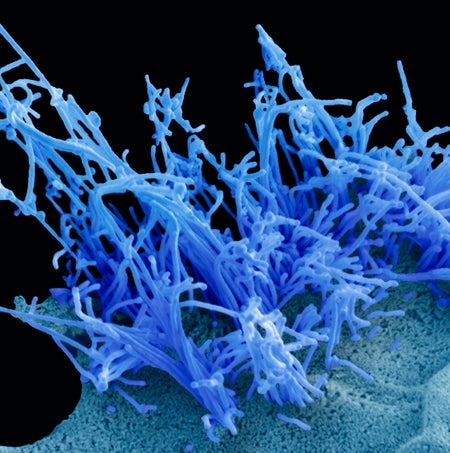
Bird Flu Virus Is One Mutation Away from Binding More Efficiently to Human Cells
A new study finds tweaking part of the H5N1 virus infecting dairy cows in a single spot could allow it to better attach to human cell receptors, raising concerns it could transmit more easily between people

New Bird Flu Cases in Young People Are Raising Concerns about Mutating Virus
Canada’s first human case of bird flu has left a teenager in critical condition as human infections continue to emerge in the western U.S.